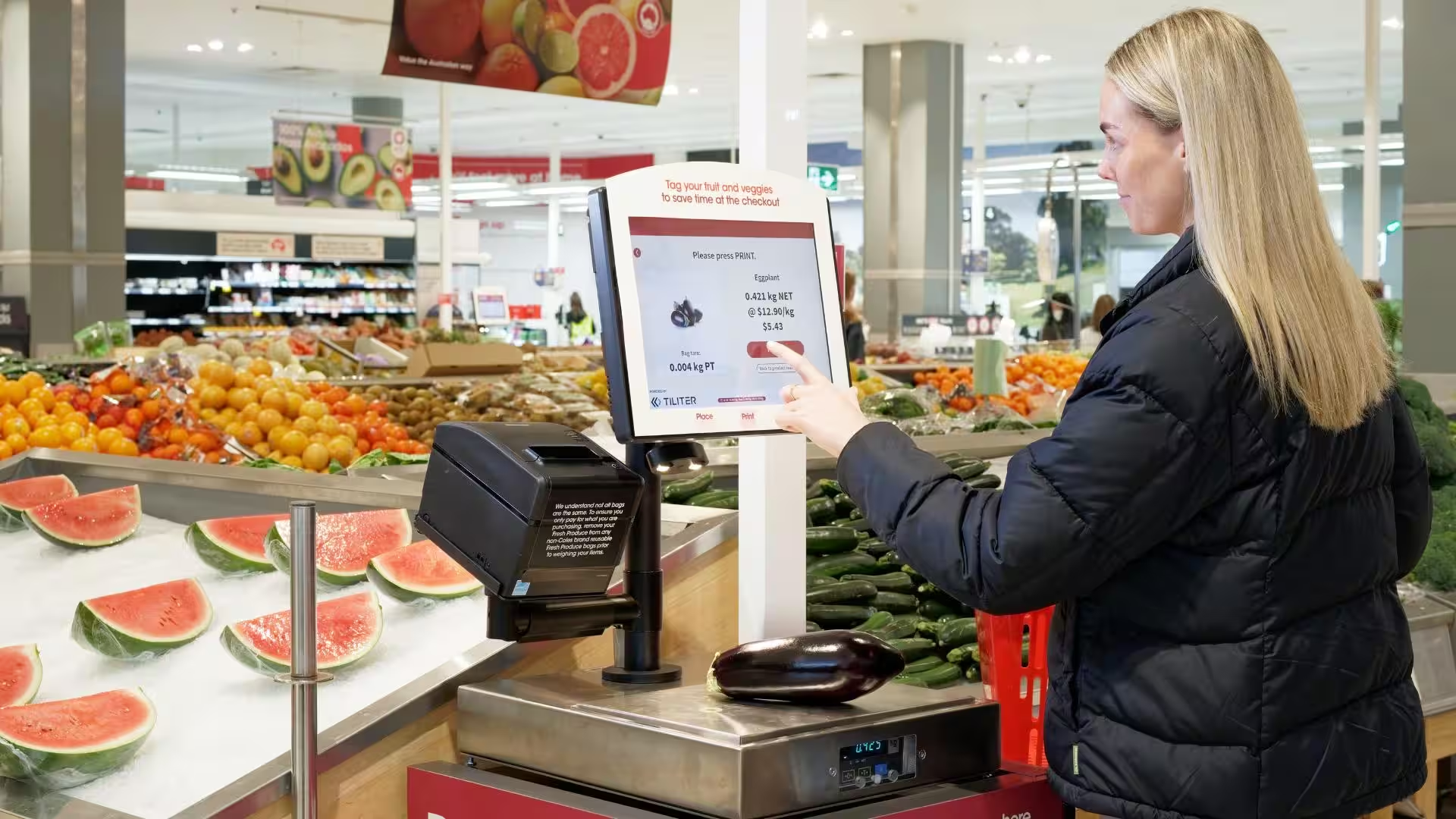Streamline checkout, prevent fraud, and improve stock accuracy with automated product recognition. Tiliter’s Vision AI Agents help retailers reduce shrink, speed up service, and remove friction for customers - without relying on barcodes or manual entry.



Automatically flag mislabelled items and correct scanning errors to ensure accurate transactions.

Accurately distinguish similar products to enforce correct pricing, prevent losses and streamline operations

Speed up checkout by 90%. Instantly identify items without PLU codes or shopper input. Efficient and intutive.

Integrate quickly using our Developer Hub and Console. Access docs, UI/UX and tools to deploy Vision AI Agents
See how a major retailer uses Tiliter’s product recognition to identify non-barcoded items, like fruit and vegetables at both staffed and self-service checkouts, reducing errors and speeding up transactions.

Accelerate mobile shopping and smart trolley experiences by seamlessly identifying non-barcoded items. This reduces shopping time by 30% and helps cut down on loss and fraud.

Increase e-commerce picking efficiency by generating barcodes readable by any handheld scanner, streamlining the order fulfilment process.

Enhance the customer experience by providing instant price checks for non-barcoded items. When combined with targeted advertising, this solution boosts basket size and overall revenue.

Simplify transactions and reduce loss and fraud by printing barcodes for non-barcoded items directly at the scale. The encoded barcodes can include fraud and loss prevention flags, alerting the checkout team when necessary.

What our clients say
See how businesses in retail, logistics, and manufacturing use Vision AI Agents to automate workflows, improve accuracy, and drive efficiency.
“We're excited to continue our partnership with Tiliter through the implementation of new, digital scales. These scales will help provide a better in-store shopping experience for our customers through both accessibility and convenience.”
"By means of automatic recognition of fresh produce at the checkout, we simplify the scanning and collection process and therefore support our outlet teams”
